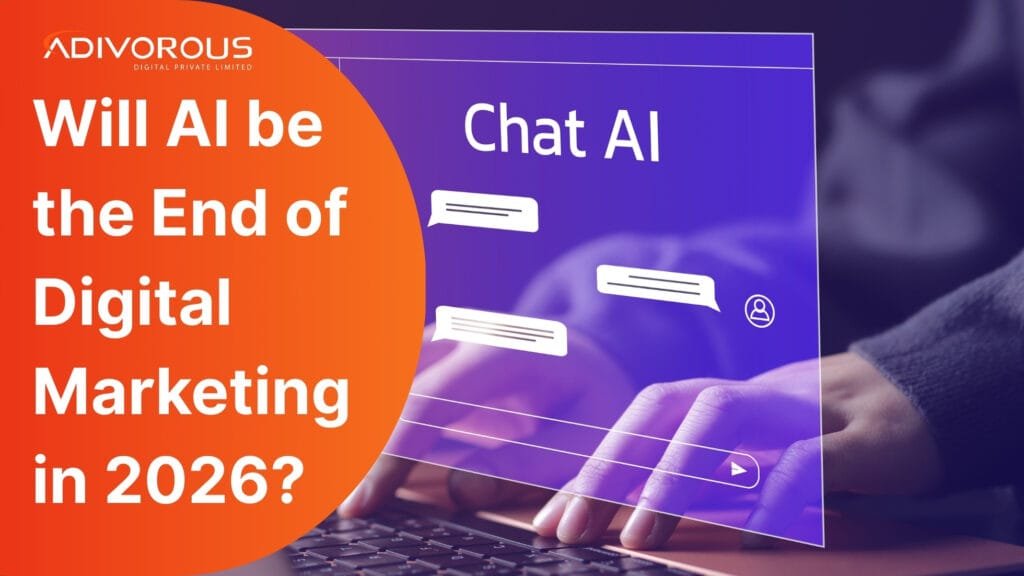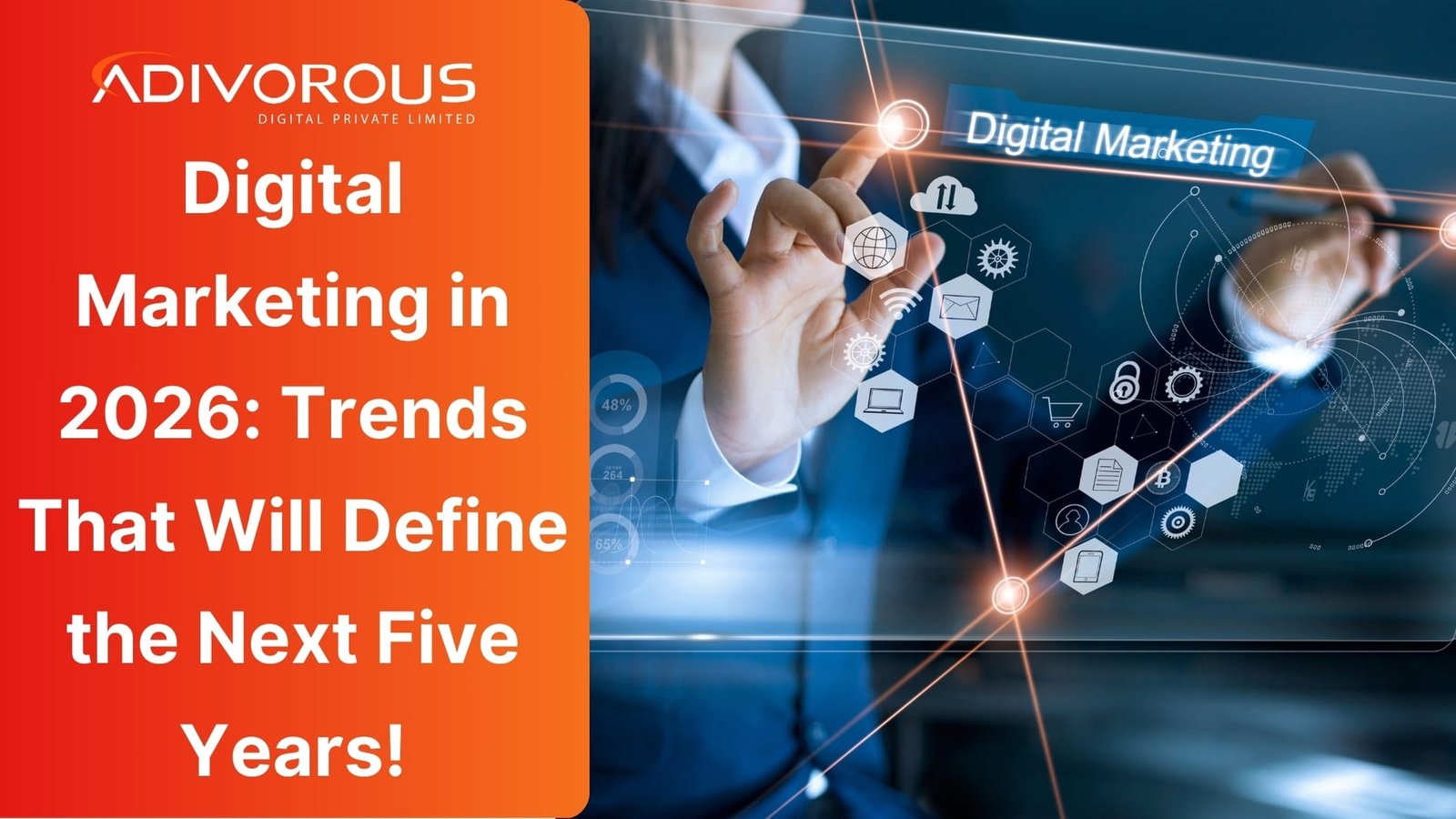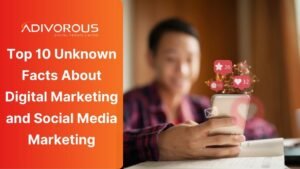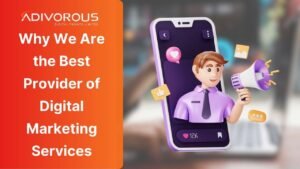We are more than the half point of the year, yet digital marketers need to get ready for the changes in the upcoming year! As we all know that digital marketing is a dynamic field, where changes in practices and new trends are built overnight. 2026 will be no different, especially if we look at the current trajectory of the market. Rampant expansion of AI into our daily lives, to the shifting of the preferred platforms for advertisement. Therefore, in this blog, Adivorous will look closely into the trends that will come to define digital marketing in 2026. Read this blog to its entirety to have a better idea about the changes that are yet to come.
Will AI be the End of Digital Marketing in 2026?
This is a very hot topic right now in this field, as more and more companies are relying on AI solutions. In particular, many analysts are predicting that the next five years will be defined by an even deeper integration of artificial intelligence (AI) in the marketing field. Unlike the earlier prediction, in 2026, AI won’t be a futuristic concept; it’ll be an essential, everyday tool. Although AI may not be as capable or self-driven as many are now predicting it to be.
Particularly, the Generative AI is now sophisticated enough to act as a creative co-pilot, assisting with everything from ad copy and email subject lines to initial video concepts, but the human element will remain paramount. The most successful marketers will use AI for efficiency by automating repetitive tasks like A/B testing, budget allocation, and real-time ad adjustments. Thus, the marketers will focus on higher-level strategic thinking, creativity, and brand storytelling. AI will handle the data, but we will provide the empathy and nuance that build true brand loyalty.
On the other hand, this shift will also lead to a fundamental shift in Search Engine Optimization (SEO). As AI-powered search assistants and conversational AI like Perplexity.ai become more common, users are shifting away from traditional keyword searches. The focus is now on semantic SEO, where content is optimised to answer complex, natural language questions and provide comprehensive, authoritative information, not just a list of links. In simple terms, content will focus on providing genuine answers to the online users and maintaining quality over quantity. The only question that remains is how the traffic will be redirected to websites whose content is used in AI answers.

People will Change How they Search Online
With the proliferation of smart speakers, wearables, and voice assistants like Gemini and Meta AI, voice search is moving from a niche trend to a mainstream behaviour. People are already using voice to find local businesses, get product recommendations, and make quick purchases. If this trend continues moving forward, by 2026, this will be a dominant search method. Therefore, marketer will need to change their SEO strategy. The days for keyword optimisation will be long over and replaced by more personal content that will contain natural language.
Thus, marketers will need to adjust their content strategies to reflect this, as stated before. This means optimising for long-tail, conversational keywords (“What’s the best cafe near me?”) and structuring content in a question-and-answer format. Featured snippets, which provide a direct, concise answer at the top of a search results page, will be more valuable than ever. To win at voice search, we at Adivorous provide the single best answer to a user’s question. We make our answers context-heavy, appropriate for both general and niche types of queries.
Digital Marketing in 2026 will Adopt Authenticity Above All
The days of simply chasing follower counts are over, as in 2026, brands will be building genuine, high-value communities. Platforms like Discord, Telegram, and even private WhatsApp groups are becoming central to a brand’s marketing strategy. These spaces allow for direct, intimate conversations with your most loyal customers, turning them from passive followers into active advocates. To have a better idea about the advantages of this trend, let’s have a look at the table below:
| Trend | Old Approach | New Approach | Why It Matters |
|---|---|---|---|
| Authenticity Focus | Polished celebrity endorsements | Raw, relatable micro-creators & UGC | Builds trust through genuine, everyday voices |
| Audience Size vs. Engagement | Large but passive audiences | Smaller but highly engaged communities | Higher interaction and emotional connection |
| Content Style | Glossy, scripted, brand-controlled | Unfiltered, personal, experience-driven | Feels more honest and less promotional |
| Collaboration Strategy | Big-budget influencer deals | Niche creator partnerships & customer content | Cost-effective and more aligned with brand values |
| Credibility Building | Fame-based influence | Social proof through real users | Enhances brand credibility and relatability |
Digital Marketing in 2026 will Make Social Commerce Hyperpersonalised
The demise of third-party cookies is forcing marketers to get smarter about data. The future is all about first-party data, which is the information you collect directly from your customers. This includes email addresses, purchase history, and behavioural data from your website or app. Here too, by using AI, marketers will be able to take this first-party data and create truly hyper-personalised experiences at scale.
In particular, this will go beyond just using a customer’s name in an email. But a website that will dynamically adjust its product recommendations based on what a user just viewed, or an ad campaign that shows different creatives to different individuals based on their past engagement. The key is to deliver this level of personalisation with transparency and a clear value exchange, so it feels helpful, not intrusive.
On the other hand, social media will no longer just be for discovery, but it will become a full-blown e-commerce channel. We have already seen the seed of this change in Facebook Marketplace or product links on YouTube. The integration of shopping features, such as shoppable posts, live product demos, and in-app checkout, will continue to evolve and become even more seamless. People will simply look at a product and purchase without ever leaving the app or the website.
Platforms like Instagram and even Google Search are increasingly focusing on offering virtual storefronts, allowing consumers to go from seeing a product to buying it in just a few taps. This trend is especially powerful when combined with influencer marketing. Influencers will increasingly become virtual store owners or brand partners, not just promoters. They will be integral to the sales funnel, directly driving conversions through their content and unique links.
Conclusion
The digital marketing in 2026 is powered by technology, personalisation and AI, but it will be defined by the human-centric strategy. The trends point to a future where automation handles the mechanics of a campaign, freeing up marketers to focus on what matters most. Which is creating authentic, valuable content; building strong, loyal communities; and crafting personalised experiences that resonate on a human level. The winners of the next five years will be those who embrace AI as a powerful tool while never forgetting that at the other end of every campaign is a person. Therefore, if you like what you have read, why don’t you connect with Adivorous today!
FAQs
- How will AI change the role of a digital marketer?
- AI will act as a co-pilot, automating repetitive tasks like data analysis, ad targeting, and content generation. This frees up marketers to focus on high-level strategy, creativity, and building authentic community relationships as skills that AI can’t replicate.
- What is the most important skill for a marketer to have by 2026?
- Adaptability and a strong understanding of data will be crucial. Marketers who can interpret and leverage first-party data to create hyper-personalised campaigns, while also staying on top of rapidly evolving AI and social media trends, will be the most successful.
- Is traditional SEO still relevant?
- Yes, but it’s evolving. While keywords are still important, the focus is shifting to semantic SEO. This means optimising your content to answer natural language questions and provide comprehensive, authoritative information that can be easily understood by both search engines and conversational AI assistants.
- How will the end of third-party cookies affect my marketing strategy?
- You’ll need to prioritise collecting and using first-party data (data you get directly from your customers, like email addresses and purchase history). This data will be essential for creating personalised campaigns and building stronger, more direct relationships with your audience.
- Should my brand be on emerging platforms?
- It depends on your target audience. Rather than trying to be everywhere, focus on the platforms where your community is most active. For 2026, the trend is less about follower count and more about building deep, engaging communities through user-generated content, regardless of the platform.






